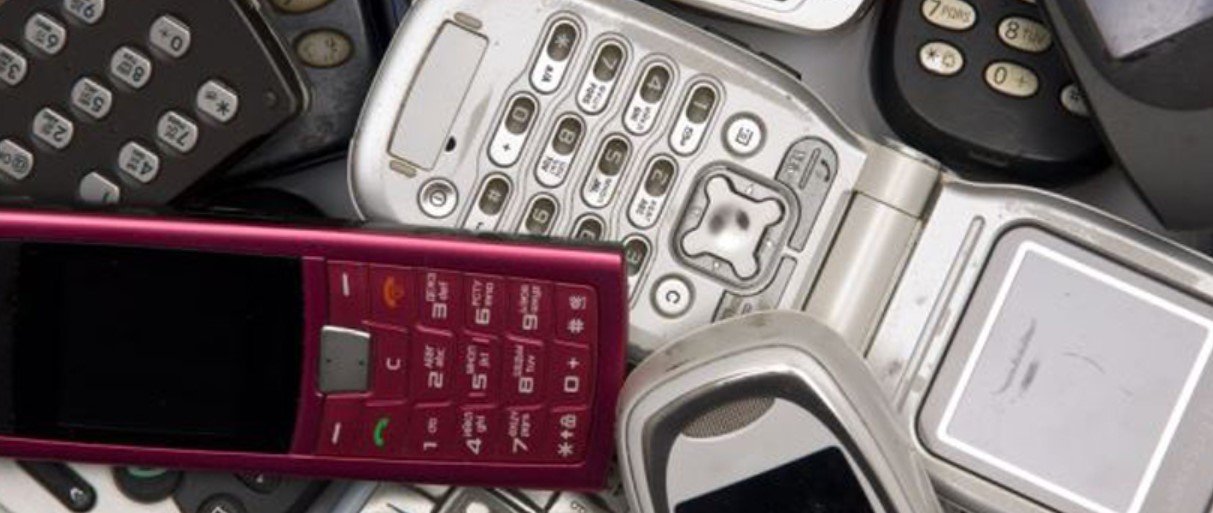Smartphones have become an essential part of our lives, offering us countless features and functions that make our daily tasks easier and more enjoyable. However, not everyone is happy with the constant connectivity and distraction that smartphones bring. Some people are opting for simpler devices, known as dumbphones, that only allow basic functions such as calling and texting. What are the reasons behind this trend, and what are the benefits and drawbacks of using a dumbphone?
Dumbphones: A Definition
Dumbphones are mobile phones that have very limited functionality compared to smartphones. They typically do not have internet access, apps, cameras, or touchscreens. They are also cheaper, more durable, and have longer battery life than smartphones. Dumbphones are sometimes called feature phones, brick phones, or burner phones.
Dumbphones are not a new invention. They were the first kind of mobile phones that people used in the late 1990s and early 2000s, before smartphones became popular. Some of the most iconic dumbphones include the Nokia 3310, the Motorola Razr, and the BlackBerry Curve.

Dumbphones: A Revival
Dumbphones have been enjoying a revival in recent years, as some people are turning to them as a way to reduce their screen time, save money, or simplify their lives. According to a report by software firm SEMrush, Google searches for dumbphones jumped by 89% between 2018 and 2021. Another report said that global purchases of dumbphones were due to hit one billion units last year, up from 400 million in 2019.
One of the factors that sparked the dumbphone revival was the 2017 relaunch of the Nokia 3310, one of the best-selling handsets of all time. Nokia marketed the 3310 as an affordable alternative in a world full of high-spec mobiles, appealing to nostalgia and simplicity. Other brands, such as Alcatel, MobiWire, and Punkt, have also released new models of dumbphones, targeting different segments of the market.
Dumbphones: A Choice
Dumbphone users have different reasons for choosing a simpler device over a smartphone. Some of them are:
- Reducing screen time: Some people are concerned about the negative effects of spending too much time on their smartphones, such as stress, anxiety, insomnia, and addiction. They use a dumbphone to limit their exposure to social media, news, games, and other apps that can be distracting or addictive. They also want to be more present and mindful in their daily activities, and avoid the constant notifications and interruptions that smartphones bring.
- Saving money: Some people are motivated by the financial benefits of using a dumbphone. They can save money on the initial cost of the device, as well as on the monthly data plan. They also do not have to worry about upgrading their phone every few years, or repairing it if it gets damaged. They can use the money they save for other purposes, such as travel, education, or charity.
- Simplifying life: Some people are attracted by the simplicity and reliability of a dumbphone. They do not need to deal with the complexity and hassle of managing a smartphone, such as updating the software, charging the battery, or protecting the data. They also appreciate the durability and longevity of a dumbphone, which can last for years without breaking or becoming obsolete. They can focus on the essential functions of a phone, such as calling and texting, and enjoy the freedom and peace of mind that a dumbphone offers.
Dumbphones: A Trade-off
Dumbphone users also have to face some challenges and limitations that come with their choice. Some of them are:
- Missing out on features: Some people may miss the features and functions that smartphones provide, such as taking photos, listening to music, watching videos, browsing the web, using maps, or accessing apps. They may feel left out or isolated from their friends, family, or colleagues who use smartphones. They may also have difficulties in finding information, communicating, or performing tasks that require a smartphone.
- Dealing with stigma: Some people may face social pressure or ridicule for using a dumbphone, especially from younger generations who are used to smartphones. They may be seen as old-fashioned, out of touch, or technophobic. They may have to explain or justify their choice to others, or deal with negative reactions or comments. They may also have to cope with the lack of support or compatibility from some service providers or platforms that cater to smartphone users.
- Adjusting to change: Some people may have to go through a period of adjustment and withdrawal when they switch from a smartphone to a dumbphone. They may experience boredom, frustration, or anxiety as they try to adapt to a different way of living and communicating. They may also have to learn new skills or habits, such as memorizing phone numbers, using a physical keyboard, or carrying a separate device for other functions.
Dumbphones: A Future
Dumbphones are not likely to replace smartphones anytime soon, as smartphones still dominate the mobile phone market and offer many advantages and conveniences to users. However, dumbphones may continue to coexist with smartphones, as some people may prefer to use them for certain purposes or situations, such as traveling, working, or relaxing. Dumbphones may also evolve and improve, offering more features and functions that can satisfy the needs and preferences of different users.
Dumbphones are a reflection of the diverse and dynamic nature of the mobile phone industry, as well as the personal and social factors that influence people’s choices. Dumbphones are a reminder that sometimes, less can be more, and that simplicity can be a smart choice.



































